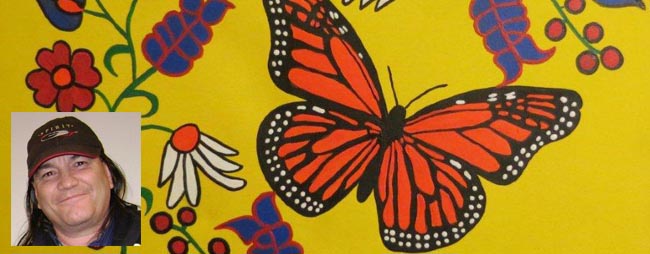‘Get brown or get lost!’

By Barb Nahwegahbow
TORONTO – “Get brown or get lost!”
That’s what Hayden King told an audience of 50 people gathered to learn how settlers can forge alliances with Indigenous people. King, a member of Beausoleil First Nation is Assistant Professor in the Department of Politics and Public Administration at Ryerson University. He’s also the Director of Ryerson’s Centre for Indigenous Governance.
King was quoting the late Dr. Harold Cardinal, Cree activist and lawyer whose book, “The Unjust Society” was a response to the government’s 1969 White Paper. The short-lived White Paper proposed doing away with the special legal status of First Nations people and absorbing them into the mainstream; in other words, assimilation.
Most of the audience, diverse in age, background and ethnicity had likely never heard of Cardinal, the ill-fated White Paper or the political firestorm that erupted amongst First Nations. A few had worked with Indigenous peoples in formal settings such as schools, and several post-secondary students were aiming at careers involving Indigenous people. Several expressed their concerns about high incarceration rates and high drop-out rates, and seemed to have a genuine interest in forging partnerships.
“From my reading of the relationship between Indigenous peoples and Canadians, it hasn’t really been a positive one,” King said, then joked that he was able to say this with a straight face. “It’s been an absolutely awful, horrendous, horrible, disastrous one – with few exceptions.
“Harold Cardinal said white people do more harm than good, but there’s one section [in his book] where he said, ‘if you want to work with us, get brown or get lost.’ He’s not talking about becoming Indian or playing Indian… but rather, to understand the terms of the relationship as set by Indigenous people.
“I think Cardinal was talking about self-determination above all things”, said King. “Indigenous people have the right to determine their own future…And if we want to have productive, fruitful, respectful relationships – Canadians, Americans, non-Native peoples, immigrants who are long-tenure or short-tenure, have to recognize and accept that and act on it.”
King was joined by Mike Ormsby, Curve Lake First Nation citizen and Toronto-based artist and activist. Ormsby shared his story, an all too familiar one, of his family’s denial of their First Nations roots and his personal journey to explore what being Indigenous meant. The personal impact of colonization on one man resonated with the audience. Ormsby presented a slide show of his paintings, explaining his art is one way he’s been able to get back to his roots.
The evening was hosted by Unify Toronto, a group that brings together people, organizations and networks working toward positive change in Toronto.


